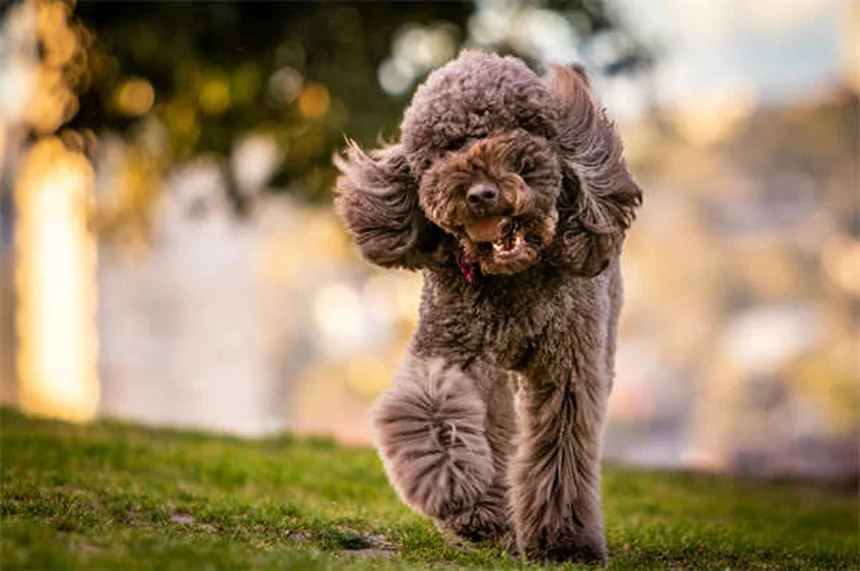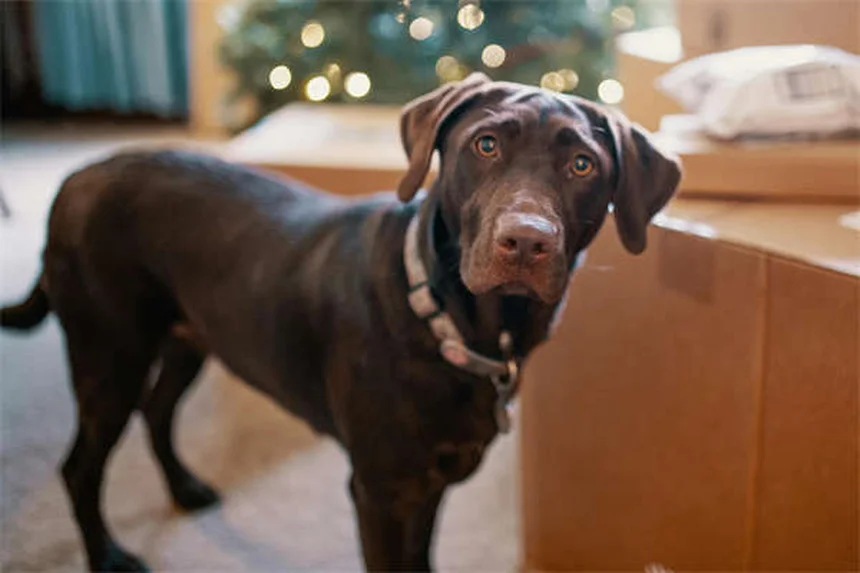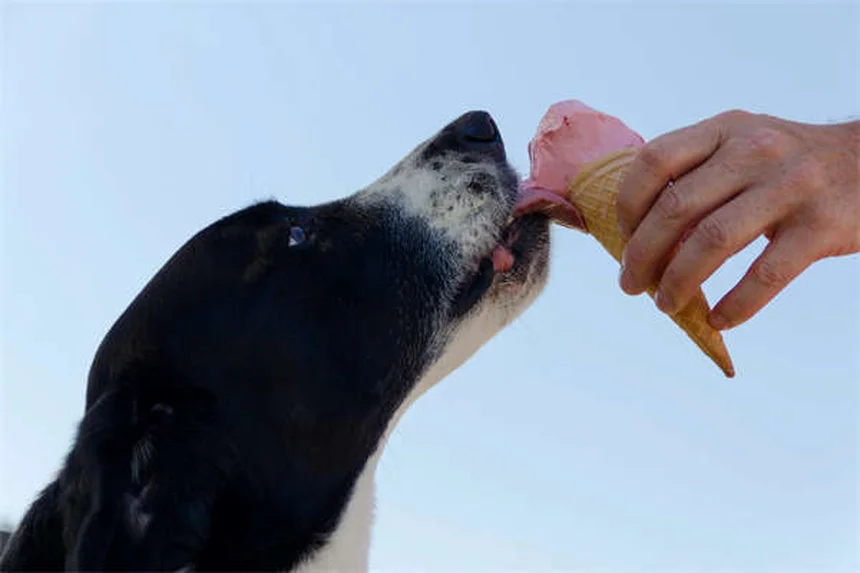Are dogs really man's best friend? The answer is a resounding YES - and science proves it! We've all heard the phrase, but what makes this bond so special? From ancient hunting partners to modern emotional support animals, dogs have earned their title through centuries of loyalty and companionship. Here's the fascinating truth: that tail-wagging greeting when you come home isn't just cute - it's backed by oxytocin (the love hormone) released in both you and your pup during interactions. Researchers like Dr. James Serpell at UPenn have traced this incredible connection back to our ancestors' relationships with wolves. Today, whether they're reading your facial expressions or comforting you after a tough day, dogs continue proving why they're humanity's most devoted friends. Let's explore what makes this interspecies friendship so unique!
E.g. :Dog Anal Gland Problems: Signs, Treatment & Prevention Tips
- 1、The Unbreakable Bond: Why Dogs Earned the Title "Man's Best Friend"
- 2、Modern Dog-Human Relationships: More Than Just Pets
- 3、Why Dogs Deserve the Title (And How We Can Be Better Friends)
- 4、The Verdict: Science and History Agree
- 5、The Hidden Superpowers of Dogs
- 6、The Secret Language of Dogs
- 7、Dogs Make Us Better Humans
- 8、The Future of Dog-Human Partnerships
- 9、FAQs
The Unbreakable Bond: Why Dogs Earned the Title "Man's Best Friend"
From Wolves to Work Partners
Ever wonder how wolves became the lovable goofballs we call dogs today? It's one of history's most fascinating transformations. Dr. James Serpell from the University of Pennsylvania explains that early nomadic hunters formed unexpected partnerships with wolves. These weren't the cuddly companions we know now - they were wild animals that gradually evolved through human selection.
Picture this: ancient humans noticed certain wolves were friendlier and more cooperative. Boom! That's when the magic began. We started breeding these sociable wolves, and over centuries, they transformed into working partners. Dr. Katy Nelson, a Washington D.C. veterinarian, paints a vivid picture: "Imagine frontier farms where dogs weren't just pets - they were essential team members, helping with herding, hunting, and protection."
The Science Behind the Connection
Here's something that'll make you go "Aww!" A 2015 study in Science journal proved what dog lovers always knew - that mutual gaze between humans and dogs triggers oxytocin release in both species. This "love hormone" is the same chemical that bonds mothers with their babies!
But wait - there's more! Dogs can actually read your facial expressions better than your teenager can. Certified trainer Victoria Schade suggests a fun experiment: "Smile at your dog without saying anything. I bet you'll get a tail wag!" This emotional intelligence makes dogs uniquely attuned to human feelings.
| Human-Dog Connection | Scientific Proof |
|---|---|
| Emotional Bond | Oxytocin release during eye contact |
| Communication | Recognizing human facial expressions |
| Cooperation | Historical working partnerships |
Modern Dog-Human Relationships: More Than Just Pets
 Photos provided by pixabay
Photos provided by pixabay
Reading Each Other's Signals
Dr. Carlo Siracusa from UPenn makes an excellent point: "Dogs respond to our emotions like best friends do." When you're happy, your dog mirrors that energy. When you're upset, they become cautious - just like how you'd act around a distressed human friend.
But here's the million-dollar question: Do we pay as much attention to our dogs' emotions as they do to ours? The honest answer? Often, we don't. Between scrolling through phones at the dog park and cutting walks short for TV time, we sometimes forget our furry friends deserve our full attention too.
The Give-and-Take of Friendship
Think about your human friendships - they require effort from both sides, right? The same goes for dogs. While they'll love you unconditionally (even when you binge-watch Netflix instead of playing fetch), the strongest bonds come from mutual understanding.
Victoria Schade puts it perfectly: "Dogs constantly scan us for emotional cues. Shouldn't we do the same for them?" Next time you're with your pup, try asking yourself: "Does my dog seem comfortable? Is this situation stressful for them?" These small considerations make a huge difference.
Why Dogs Deserve the Title (And How We Can Be Better Friends)
Loyalty That Never Quits
Let's be real - humans can be flaky friends. We cancel plans, forget birthdays, and sometimes take relationships for granted. But dogs? They're the definition of ride-or-die companions. Dr. Serpell sums it up: "Having someone who considers you the most important person in the world? That's special."
Here's another thought-provoking question: What makes dog loyalty so remarkable? It's their ability to forgive our flaws and love us unconditionally. While we might get distracted by technology or busy schedules, dogs remain present, offering comfort without judgment.
 Photos provided by pixabay
Photos provided by pixabay
Reading Each Other's Signals
Want to be the best human your dog could ask for? Try these simple but powerful actions:
- Put your phone away during walks and playtime
- Learn to read your dog's body language
- Create daily bonding rituals (even just 10 minutes of focused attention)
- Respect their need for rest and personal space
Remember, friendship is a two-way street. The more you invest in understanding your dog, the stronger your connection becomes. And isn't that what "best friends" are all about?
The Verdict: Science and History Agree
More Than Just a Saying
"Man's best friend" isn't just a cute phrase - it's backed by centuries of cooperation and modern scientific research. From ancient hunting partners to modern emotional support, dogs have proven their unique ability to connect with humans on multiple levels.
As Dr. Siracusa reminds us: "The title is well-earned, but we should actively nurture this friendship." Whether through quality time, better communication, or simply being more present, we can all strengthen this incredible interspecies bond.
A Friendship Like No Other
In a world where relationships can be complicated, the dog-human connection remains beautifully simple. They ask for so little yet give so much. Maybe that's the real secret behind this timeless friendship - in their eyes, we're already perfect, and that kind of unconditional acceptance is rare and precious.
So next time your dog greets you like you're the greatest thing since sliced bread (even when you know you're not), take a moment to appreciate this extraordinary bond. After all, how many other friends will get that excited just because you came home?
The Hidden Superpowers of Dogs
 Photos provided by pixabay
Photos provided by pixabay
Reading Each Other's Signals
You know dogs have amazing sniffers, but did you realize they can detect certain diseases better than medical equipment? That's right - your goofy pup might be a walking diagnostic tool! Studies show dogs can identify cancer, diabetes, and even COVID-19 with impressive accuracy. Their noses contain up to 300 million scent receptors compared to our measly 6 million.
Let me tell you about Max, a golden retriever in Florida who kept sniffing his owner's leg obsessively. Turns out, he detected early-stage melanoma that doctors had missed! Now hospitals are training "medical detection dogs" to screen patients. Who knew man's best friend could also be man's best doctor?
Emotional First Responders
When disaster strikes, dogs don't just fetch slippers - they save lives. Search-and-rescue dogs worked tirelessly after 9/11, finding survivors in the rubble. Therapy dogs comfort traumatized school shooting survivors. Even your couch potato pup probably senses when you're sad and comes to cheer you up.
But here's something wild: Why do dogs seem to know exactly what we need emotionally? Animal behaviorists believe it's a combination of evolutionary adaptation and their incredible ability to read our body language and scent changes. They notice subtle shifts we don't even realize we're making!
| Dog Superpower | Human Equivalent |
|---|---|
| Medical detection | MRI machines + lab tests |
| Emotional support | Therapy sessions |
| Search & rescue | Emergency response teams |
The Secret Language of Dogs
Tail Wags Aren't Just for Happiness
You probably think a wagging tail means a happy dog, right? Surprise! Tail position and movement direction actually convey different emotions. A high, stiff wag can signal alertness or potential aggression, while a low, loose wag usually means relaxation. Researchers found dogs wag more to the right when happy and to the left when anxious.
Next time your dog greets you, watch closely. That helicopter tail spin when you grab the leash? Pure joy. The slow side-to-side sweep when meeting a new dog? Caution. It's like they're speaking in semaphore! Understanding these signals helps prevent misunderstandings that could lead to bites or stress.
The Eyebrow Game Changer
Here's a fun fact that'll change how you look at your dog's face - literally. Dogs evolved special eyebrow muscles just to communicate with humans! Wolves don't have these "puppy dog eyes" muscles, but domesticated dogs developed them to better express emotions we understand.
Think about it: when your dog wants your sandwich, those big, soulful eyes are hard to resist. That's not accidental - it's evolutionary strategy! Researchers found dogs who make more expressive faces get adopted from shelters faster and receive more attention from their humans. Talk about working those facial muscles!
Dogs Make Us Better Humans
Unexpected Life Coaches
Ever notice how dogs live in the moment? They don't stress about yesterday's mistakes or tomorrow's vet appointments. We could learn a thing or twenty from their mindfulness! Therapy dogs in schools help anxious kids stay present. Veterans with PTSD find comfort in service dogs' steady companionship.
My neighbor's anxious rescue dog, Luna, taught her whole family patience and consistency. "We had to learn to stay calm when she panicked," Sarah told me. "It changed how we handle stress as a family." Who's training whom in these relationships? Sometimes it's hard to tell!
Community Builders on Four Paws
Dogs don't just connect with individuals - they connect communities. Dog parks become social hubs where people from all walks of life bond over their pups. Studies show neighborhoods with more dogs have lower crime rates and stronger social ties.
Remember during lockdown when everyone started walking their dogs more? Those daily "puppy parades" became vital social connections. Your dog isn't just your best friend - they're your neighborhood ambassador! Next time you're out with your pup, notice how many conversations they spark with strangers. That's social magic no human could replicate!
The Future of Dog-Human Partnerships
High-Tech Helpers
Think service dogs are impressive now? Wait until you see what's coming! Researchers are developing smart vests that translate dog signals into human language. Imagine your dog could "say" exactly when they're in pain or what they need! Other teams are working on augmented reality systems to help search dogs navigate disaster zones more efficiently.
But here's the million-dollar question: Will technology strengthen or weaken our bond with dogs? The key is using tech to enhance, not replace, our natural connection. Those wagging tails and wet noses can't be replicated by robots - and we wouldn't want them to be!
Climate Change Companions
As our planet changes, dogs are stepping up in surprising ways. Conservation dogs track endangered species and invasive plants. Some specially trained pups can even sniff out illegal wildlife products at airports! Their incredible noses help scientists monitor ecosystem health without disturbing fragile environments.
Your own dog might not be saving pandas, but their environmental impact matters too. Eco-friendly pet products are booming, from biodegradable poop bags to sustainably sourced food. Together, we can make paw prints that heal the planet instead of harming it. Now that's a friendship worth nurturing!
E.g. :dOgS aRe MAn's BeST FriEND : r/Dogfree
FAQs
Q: How did dogs become "man's best friend" historically?
A: The friendship between humans and dogs goes way back - we're talking thousands of years! According to Dr. Serpell, it all started when ancient humans formed unexpected partnerships with wolves. These weren't the cuddly pups we know today, but wild animals that gradually evolved through human selection. We basically "hired" the friendliest wolves as hunting partners, and over centuries, they transformed into the working dogs that helped with everything from herding to protection. Dr. Nelson puts it perfectly: "We've matured going through this world together." That's why even today, your dog still has that instinct to be your loyal teammate!
Q: What scientific evidence proves the dog-human bond?
A: Buckle up for some cool science! A groundbreaking 2015 study in Science journal showed that when dogs and humans lock eyes, both release oxytocin - the same "love hormone" that bonds mothers with babies. But that's not all! Dogs can actually read your facial expressions better than most humans. Trainer Victoria Schade suggests trying this: "Smile at your dog without saying anything - guaranteed tail wag!" This emotional intelligence makes dogs uniquely attuned to our feelings, which is why they often know when we're sad before we even say a word.
Q: Do dogs really understand human emotions?
A: Absolutely - and they respond just like human best friends would! Dr. Siracusa explains that dogs mirror our emotions: when you're happy, they get excited; when you're upset, they become cautious. But here's the kicker - while dogs are constantly scanning our emotions, we often don't return the favor. Between phone scrolling and busy schedules, we sometimes miss their signals. Next time you're with your pup, try asking: "Are you comfortable?" This simple awareness can seriously strengthen your bond.
Q: Why are dogs so loyal compared to other pets?
A: That unconditional love isn't just in your imagination! Dogs have evolved over millennia to form deep attachments to humans. While cats were domesticated for pest control, dogs partnered with us for survival. This created a unique interdependence - they helped us hunt, we provided food and shelter. Today, even without "jobs," that loyalty remains hardwired. As Dr. Serpell says, "Having someone who considers you the most important person in the world? That's special." No wonder they forgive our flaws (like cutting walks short for Netflix)!
Q: How can I be a better friend to my dog?
A: Great question! Friendship goes both ways. Here are simple but powerful ways to strengthen your bond: First, put your phone away during quality time - your dog notices when you're distracted. Learn their body language (tail wagging isn't always happy!). Create daily rituals, even just 10 minutes of focused play. Respect their need for space - yes, dogs need "me time" too! Remember, the small moments matter most. That excited greeting when you come home? That's your dog saying "You're my best friend!" - so return the favor!



Discuss